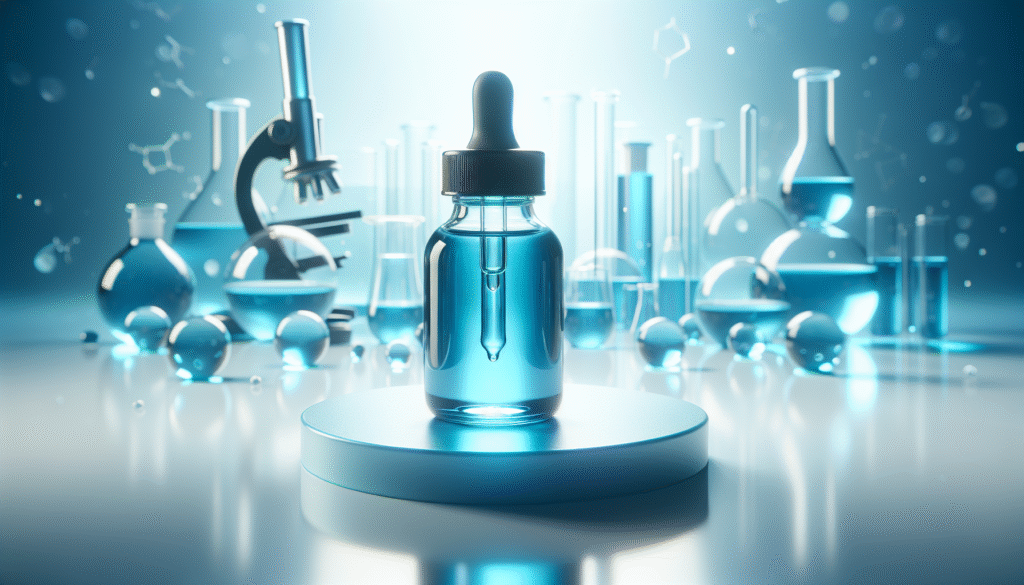
Have you ever considered how certain compounds might enhance your cognitive capacities? One such compound that has garnered interest in the scientific community is methylene blue. Traditionally recognized as a dye and an antibacterial agent, recent studies have indicated its potential to improve cognitive function. This article will detail the benefits of methylene blue for cognitive function, drawing on the latest research to offer an informed perspective.
Understanding Methylene Blue
Methylene blue, a synthetic dye, has been utilized since the late 19th century for a variety of medical applications. Initially used to treat malaria, its range has expanded significantly. Methylene blue interacts with cellular components and neural processes, suggesting promising implications for cognitive enhancement.
The Mechanism of Action
To appreciate how methylene blue may enhance cognitive function, it is crucial to understand its mechanisms. Methylene blue serves as an electron carrier in the mitochondrial respiratory chain, promoting cellular energy production. This role is vital, as cognitive functions rely heavily on energy metabolism.
Furthermore, methylene blue exhibits antioxidant properties that mitigate oxidative stress. Excessive oxidative stress can lead to neuronal damage, impairing cognitive capabilities. By combating oxidative stress, methylene blue supports brain health.
Cognitive Function: An Overview
Cognitive function encompasses various mental processes, including memory, attention, and reasoning. Understanding its complexity can aid in recognizing the implications of interventions like methylene blue.
The Domains of Cognitive Function
Cognitive function is often categorized into different domains, including:
| Domain | Description |
|---|---|
| Memory | The ability to store and recall information. |
| Attention | The capacity to focus on specific stimuli while ignoring distractions. |
| Executive Function | Higher-level processes such as problem-solving and planning. |
| Language | The ability to comprehend and produce spoken or written language. |
| Visual-Spatial Skills | The capacity to process and analyze visual information. |
Each of these domains plays a crucial role in daily activities and overall quality of life. When cognitive function diminishes, everyday tasks can become challenging.

The Research on Methylene Blue and Cognitive Function
Research investigating the relationship between methylene blue and cognitive function has been expanding. Various studies have hinted at its effects on memory enhancement, attention, and overall cognitive performance.
Memory Enhancement
One key area of research has focused on memory enhancement. In animal models, methylene blue has been shown to enhance memory retention. Studies indicate that low doses can improve the consolidation of memory, potentially making it a useful adjunct in conditions characterized by memory impairment.
Clinical Applications
While most memory-focused research involves animal studies, there is a growing interest in human applications. Clinical trials investigating methylene blue’s effects on cognitive performance and memory retention are underway. These trials may offer insights into how methylene blue could potentially be used in clinical settings, particularly for individuals experiencing cognitive decline.
Attention and Focus
In addition to memory enhancement, methylene blue appears to influence attention and focus. In clinical settings, it has shown promise in mitigating attention deficiencies. Research indicates that it can improve attentional capacity, enabling individuals to maintain focus for extended periods.
Implications for ADHD
Given its potential effects on attention, methylene blue may have implications for conditions such as Attention Deficit Hyperactivity Disorder (ADHD). While not a substitute for traditional treatments, methylene blue could serve as a supplementary option in managing symptoms.
Overall Cognitive Performance
The impact of methylene blue on overall cognitive performance is another area of interest. Some studies suggest that it can enhance cognitive performance in tasks requiring complex problem-solving and decision-making.
Neuroprotection
Another compelling aspect of methylene blue is its neuroprotective properties. It fosters neuronal survival by reducing inflammation and apoptosis (programmed cell death). Protecting neurons is essential for maintaining cognitive function over time, especially as you age.
Safe Usage of Methylene Blue
Considering the potential benefits, you may wonder about the safety of methylene blue. While it has been used for decades in various medical applications, it is crucial to ensure safe consumption and administration.
Dosage Considerations
The effects of methylene blue are dose-dependent. Low doses may enhance cognitive function, while high doses could potentially lead to adverse effects. Typical dosages in research studies range from 0.5 mg to 4 mg per kilogram of body weight. Consulting with a healthcare provider before commencing any new supplement is essential to determine the appropriate dosage for your specific needs.
Possible Side Effects
While methylene blue is generally considered safe, it is not without potential side effects. Some documented effects include:
| Side Effect | Description |
|---|---|
| Urine Discoloration | Methylene blue can cause a blue or green tint to urine, which is harmless but can be concerning. |
| Gastrointestinal Issues | Some individuals report nausea, diarrhea, or abdominal discomfort. |
| Allergic Reactions | Rarely, some may experience allergic reactions, necessitating immediate medical attention. |
In rare cases, doses exceeding the safe threshold may lead to more severe side effects. Always approach supplementation carefully, and remain vigilant about any physiological changes.

Methylene Blue in Combination with Other Treatments
As the interest in methylene blue grows, the question arises about its efficacy when used in combination with other cognitive enhancers or therapeutic approaches.
Synergistic Effects with Nootropics
Nootropics are substances purported to enhance cognitive functions. Combining methylene blue with certain nootropics may lead to synergistic benefits, amplifying its cognitive-enhancing effects. Ingredients commonly paired with methylene blue include:
| Nootropic | Description |
|---|---|
| L-Theanine | An amino acid known for promoting relaxation without sedation, it can complement focus-enhancing functionalities of methylene blue. |
| Bacopa Monnieri | An herb recognized for its memory-boosting properties, which may further augment the memory-enhancing effects of methylene blue. |
| Rhodiola Rosea | This adaptogen helps combat fatigue and enhances mental resilience, potentially synergizing with methylene blue’s benefits. |
Caution in Combinations
If considering combining methylene blue with other treatments, it is prudent to consult a healthcare professional. Interactions can occur, and someone with pre-existing conditions or on medications should be especially cautious.
Future Directions in Research
The trajectory of research surrounding methylene blue and cognitive function appears promising, with several areas warranting further exploration.
Enhanced Understanding of Mechanisms
Ongoing studies aim to deepen the understanding of the specific mechanisms by which methylene blue exerts its cognitive effects. Identifying these pathways can pave the way for more targeted interventions, leveraging methylene blue’s properties in innovative ways.
Longitudinal Studies
Most research conducted so far has utilized short-term evaluations. Longitudinal studies assessing the long-term effects of methylene blue on cognitive function are essential. These studies can provide insights into its efficacy as a protective agent against cognitive decline over time.
Broader Application in Cognitive Disorders
Research is also focusing on the potential applications of methylene blue in various cognitive disorders, such as Alzheimer’s disease and other forms of dementia. Investigating its capacity to improve cognitive function in individuals with these conditions could lead to breakthrough treatment options.

Conclusion
The potential benefits of methylene blue for cognitive function are becoming increasingly well-documented. From enhancing memory retention to potentially improving attention and overall cognitive performance, this compound offers a multifaceted approach to cognitive enhancement.
As research progresses, we will continue to uncover the intricacies of its mechanisms and applications. However, it is crucial to approach methylene blue use judiciously, keeping in mind proper dosages and potential side effects. Engaging healthcare professionals in the conversation around its use will ensure you capitalize on its benefits safely and effectively.
If you find yourself seeking methods to enhance cognitive function, methylene blue may warrant consideration. The intersection of pharmacology and cognitive health is an innovative field, and as more evidence emerges, it may redefine how we approach cognitive enhancement in the years to come.